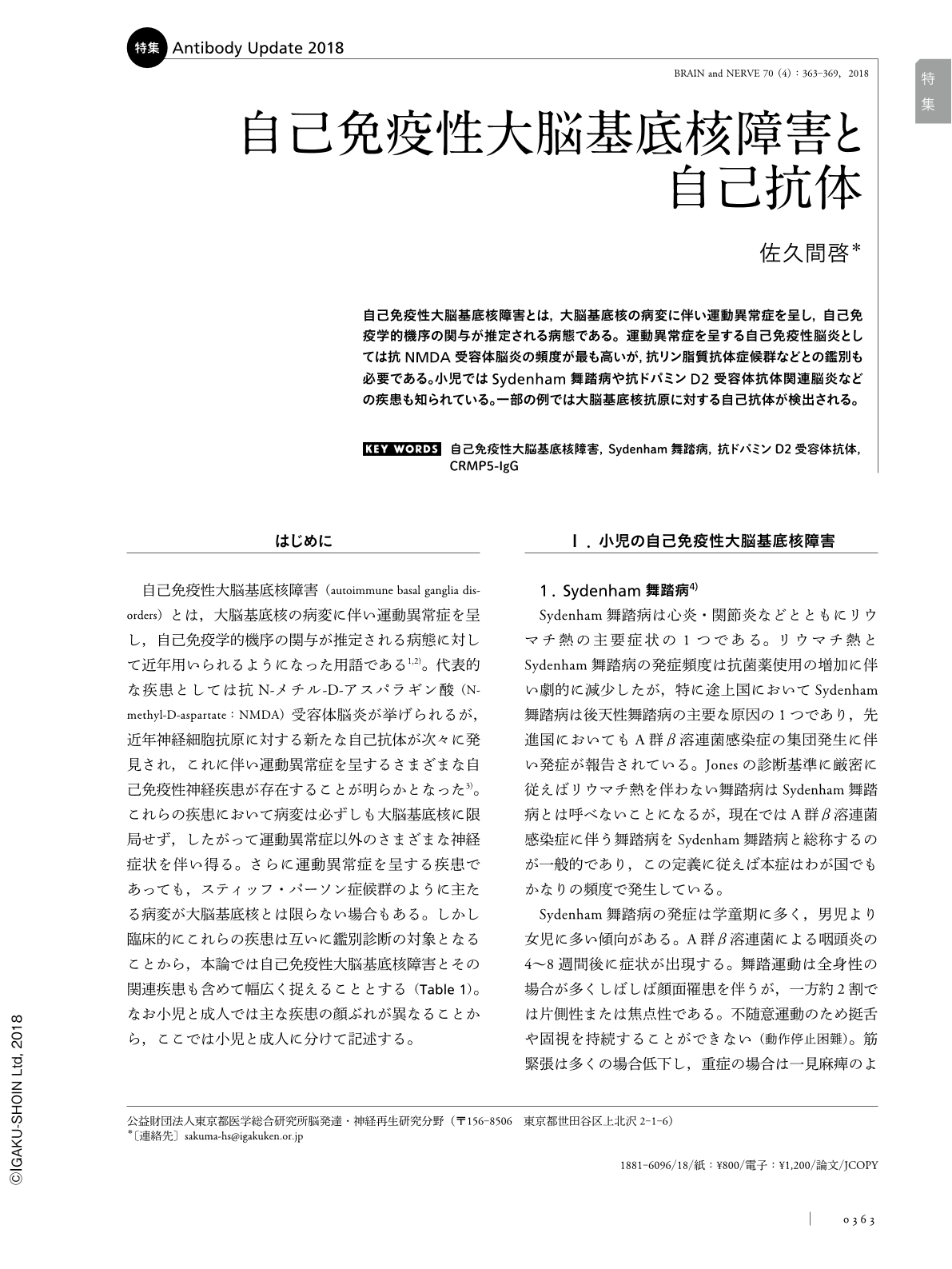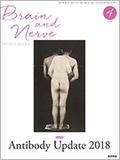Japanese
English
- 有料閲覧
- Abstract 文献概要
- 1ページ目 Look Inside
- 参考文献 Reference
- サイト内被引用 Cited by
自己免疫性大脳基底核障害とは,大脳基底核の病変に伴い運動異常症を呈し,自己免疫学的機序の関与が推定される病態である。運動異常症を呈する自己免疫性脳炎としては抗NMDA受容体脳炎の頻度が最も高いが,抗リン脂質抗体症候群などとの鑑別も必要である。小児ではSydenham舞踏病や抗ドパミンD2受容体抗体関連脳炎などの疾患も知られている。一部の例では大脳基底核抗原に対する自己抗体が検出される。
Abstract
Autoimmune basal ganglia disorders (ABGDs) are presumed autoimmune encephalitides characterized by movement disorders and basal ganglia lesions on neuroimaging. The most common type of autoimmune encephalitis manifesting as movement disorders is anti-N-methyl-D-aspartate (NMDA) receptor encephalitis. Anti-phospholipid antibody syndrome and neuropsychiatric lupus may present with chorea or other involuntary movements. In childhood, Sydenham's chorea is an important differential diagnosis. Although autoantibodies directed against the surface antigens on basal ganglia neurons are assumed to cause ABGDs, few autoantibodies have been demonstrated to be relevant to certain clinical syndromes except for anti-NMDA receptor antibodies. However, recent studies have identified autoantibodies to the dopamine D2 receptor and collapsin response mediator proteins in patients with ABGDs. It remains to be elucidated, however, whether these autoantibodies to basal ganglia antigens play pathogenic roles in ABGDs.

Copyright © 2018, Igaku-Shoin Ltd. All rights reserved.


